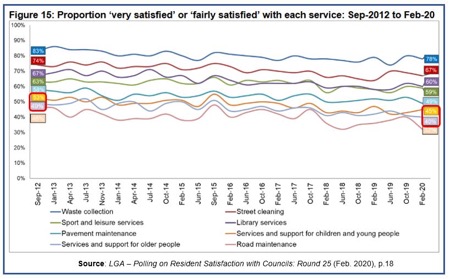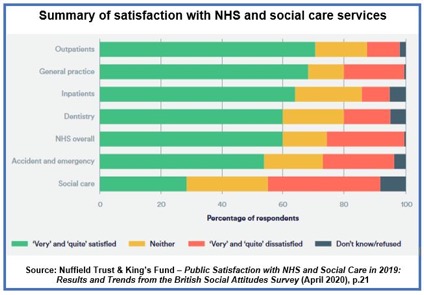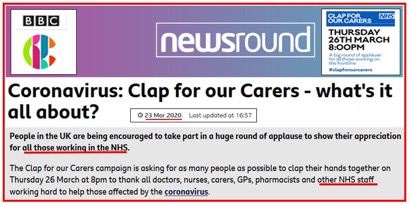Jessica Studdert
The concentration of power at Westminster and Whitehall has long frustrated those of us who engage closely with the structures of governance and compare it to decentralised norms across much of Europe. Now, as with so many facets of the Covid-19 crisis, the pandemic has exposed national vulnerabilities and left us grappling with the consequences. The grip on initiative that rests in SW1 is one such weakness, which is impacting how our system is responding to the virus, in turn perpetuating the public health emergency we find ourselves in.
A degree of national direction is clearly needed in the midst of a serious pandemic. People look to the Government for leadership and reassurance. Those in positions of power certainly feel personal responsibility for leading the response. Measures to implement service strategy nationally, such as through the NHS, or to use national heft for international procurement buying power, are certainly necessary. But time after time during the unfolding crisis, the centralised instinct has clouded decision-making, with terrible results.
The structures for the top-down approach to the pandemic were set early on, when the Government chose not to deploy the existing Civil Contingencies Act which set out clear roles, responsibilities and resources for all local and national public bodies. They instead rushed the Coronavirus Act through Parliament, which gave the Executive a greater level of unchecked power and no defined local role. This has had ongoing consequences for the coordination of an effective response. Leaked findings from an internal Whitehall review found that local emergency planning teams believe their abilities have been compromised by a controlling and uncommunicative approach from the central government machine, which persistently withholds data and intelligence.
The centralised response isn’t just structural, at times it has felt deeply instinctive. There has been a repeated preference for big, bold flashy schemes over smaller, sustained but potentially more impactful measures. In the early weeks of the crisis much media attention focussed on the new Nightingale hospitals, yet we are now seeing tragically how that time and resource could have been better invested in the more targeted shielding of hundreds of care homes. When faced with the need to quickly implement testing for Covid-19, the Secretary of State for Health reached for a high-profile 100,000 target and set up new large processing sites. This triumph of tactics over strategy directed the systemic response to focus on numbers over priority need and overlooked existing networks of local lab capacity. Even as attempts are made to set up contact tracing at scale to support the easing of lockdown restrictions, the Government seems to have more confidence in a new mobile app than it does existing local public health teams. This is despite the latter’s expertise in tracing the contacts of people who have highly infectious diseases and clear evidence from countries who have successfully managed their lockdown transition.
The formal power exercised at the centre is in direct contrast to the informal role for local authorities, which is having devastating consequences for their very viability. Because councils’ response has no statutory footing in the context of an emergency, they are left exposed to the whims of a few individuals making decisions in Westminster. At the start of the crisis, the Secretary of State for Local Government told local authorities to spend “whatever it takes” to protect their residents. Councils had immediately set about providing relief to shielded groups, protecting wider vulnerable groups and implementing public safety measures, all while ensuring essential services continued as usual. Rather than support these efforts, Government then rescinded this early clear backing, querying councils’ honesty over their cost assessments and leaving many facing a financial black hole.
The double standards central government imposes on its local counterparts is nowhere more apparent than when it comes to local government finance. An emergency on the scale of a global pandemic has required state-led responses on a scale inconceivable only months ago, and with widespread public approval. Central government spending has snowballed to accommodate unprecedented employee furlough schemes, emergency business support measures, not to mention the enormous costs to the NHS. The Chancellor has the leeway to respond to this through a number of different measures – incurring public debt, raising taxes, freezing public sector wages and reducing public spending, a combination of which he is reportedly considering.
Local government has no such room for fiscal manoeuvre. Councils are legally required to balance annual budgets and have only narrow revenue-raising powers through council tax and business rates which are themselves subject to centrally imposed controls. With a shock to their budgets of this scale they are at the mercy of decisions made by a few in Westminster. These have so far resulted in a couple of ad hoc cash injections of £1.6bn each, and a bit extra cobbled together earmarked for social care and rough sleepers – so far massively short of the estimated £10-13 billon shortfall councils collectively face.
It is no way to run a country. It never was, but in the context of the crisis the contradictions of our top-heavy system of governance are laid bare. The rumblings of discontent from Mayors in the north of England at their regions being side-lined, and from councils over plans to fully reopen schools in the absence of clear local test, track and trace infrastructure, suggest the popular tide is beginning to turn against blanket centrally-imposed measures. As local government is increasingly being seen as better placed to protect their residents, particularly in the context of a Government that is increasingly mis-stepping, there may now be an opportunity for a deeper discussion about how our country should be run in the interests of everyone.







